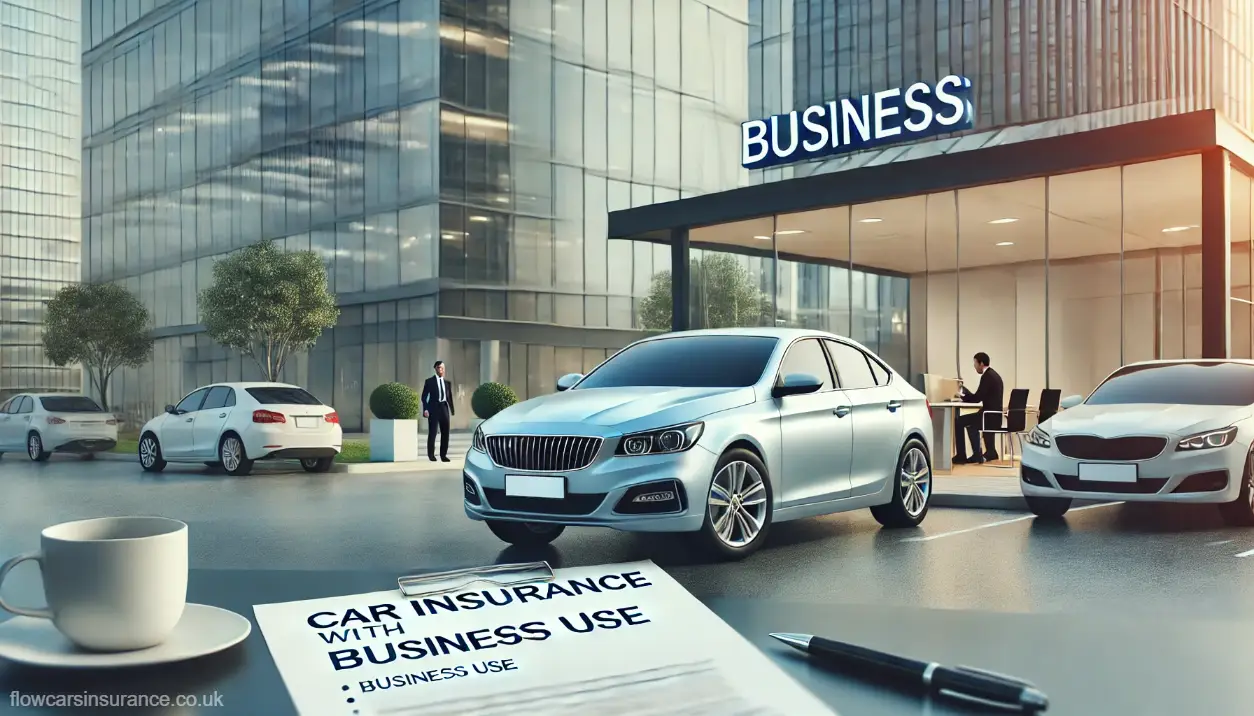Key Takeaway: Choosing the right class of use on your car insurance policy is vital if you drive for work-related purposes beyond simple commuting. Misclassifying your usage can invalidate your cover just when you need it most. This guide explains what “business use” means, the different classes available in the UK market, who needs it, how costs are calculated, and tips for securing the best policy.
1. What Is “Business Use” Cover?
“Business use” extends your policy beyond Social, Domestic and Pleasure (SDP) and commuting. It covers journeys such as:
- Travelling between multiple work sites
- Visiting clients, suppliers, or other business contacts
- Trips to the bank, post office, or other errands related to your trade
Unlike pure commercial policies (required for deliveries, courier work, taxi or private hire), business use is designed for professionals using a personal or company car for incidental work journeys. It is insufficient, however, for remunerated delivery or passenger-carrying work for hire.
2. Classes of Business Use
UK insurers typically break business use into classes. Though names vary, the three most common are:
| Class | Who It Covers | What It Covers |
|---|---|---|
| Business Class 1 | Policyholder only (sometimes spouse) | SDP + commuting + driving between multiple workplaces and client visits |
| Business Class 2 | Policyholder and named drivers | Same as Class 1, plus cover for spouse/other named drivers on business trips |
| Business Class 3 | Policyholder (salespeople only) | Class 2 + “commercial travelling” for sales reps (but not courier/delivery) |
Key distinctions:
- Class 1: The basic level, ideal if you only need the policyholder to be covered on work trips.
- Class 2: Extends the same business use cover to named drivers.
- Class 3: Allows specialist roles like travelling salespeople to carry products or samples on business trips, but still excludes paid-for delivery or courier work.
3. Who Needs Business Use?
You should declare business use if you:
- Drive to multiple offices or client sites during a working day
- Transport colleagues or business contacts in your vehicle
- Run errands for your employer (e.g., bank, post office)
- Regularly clock up high mileage for work purposes
If your journeys are limited to commuting to a single workplace, Social, Domestic & Pleasure including Commuting (SDP&C) cover suffices.
4. How Premiums Are Calculated
Business use premiums tend to be higher than standard policies due to increased risk and mileage. Insurers assess:
- Mileage: More miles for work means a higher likelihood of accidents.
- Driver history: Claims record and convictions.
- Vehicle type: Age, value, safety, and security ratings.
- Business activity: Visiting clients at multiple locations is riskier than a fixed commute.
- Parking: Overnight parking location can influence rates if it’s high-theft or remote.
A typical premium uplift for basic business use can range from 10–30% above comparable social-only cover, though this varies by insurer and individual circumstances.
5. Tips for Securing the Best Business Use Cover
- Accurately declare usage: Under-declaring business mileage or journeys invalidates cover.
- Compare insurers: Insurer definitions of business use differ—some include errands, others only client visits.
- Limit named drivers: Opt for Class 1 if only one person needs business cover to minimise premium.
- Reduce mileage: Where possible, combine trips and work from home to lower declared business miles.
- Secure parking: Garaging your car overnight in a locked garage or secure compound can earn discounts.
6. Frequently Asked Questions
- Q: Can I use a personal car policy for business trips?
A: Only if you add the correct business use class. Personal policies without business cover exclude these journeys and will refuse claims if you’re on work business when an incident occurs. - Q: What’s the difference between “business use” and “commercial” insurance?
A: Business use covers incidental work journeys in a private car. Commercial policies are for vehicles owned by a company, deliveries for hire, and passenger-carrying services. - Q: Will my employer’s policy cover me?
A: Company cars are insured under a commercial fleet policy. If you use your personal car for work, only your declared business use on your policy applies.
7. Conclusion
Correctly declaring business use ensures your policy responds when you need it, protecting you and your business from financial risk. Evaluate how often and why you drive for work, choose the appropriate class (1, 2, or 3), and shop around for the best rate. With the right cover in place, you can travel with confidence on every business journey.
